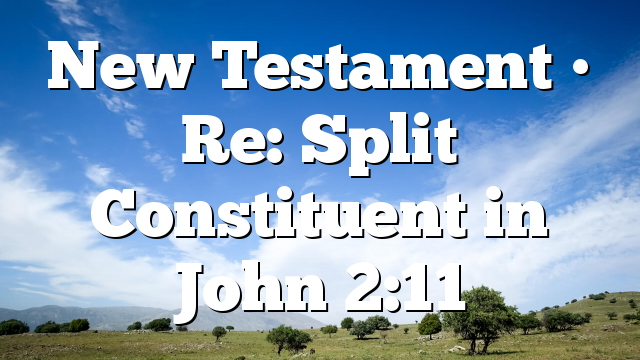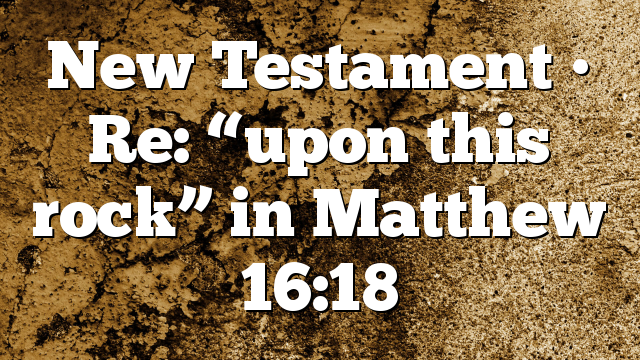Stephen Hughes wrote: ↑
April 20th, 2017, 1:09 am
How difficult is it to make concordance list this into one with verse-either-side or paragraph contexts? Looking them up one by one and finding the element mentioned is tedious.
Here’s one way you could do that: use a text editor to make lists of verses like this:
CODE:
Luke 19:23; John 17:6; John 17:8
Now use a site like Biblegateway that allows you to specify more than one verse at the same time. Here is the format for the URL you need:
CODE:
https://www.biblegateway.com/passage/?search=Luke 19:23; John 17:6; John 17:8&version=SBLGNT
Or you can enter the list of verses into their text box and select SBLGNT, if you prefer. Please start a new thread if you want to discuss the results of that, or put it into your moieties thread.
Statistics: Posted by Jonathan Robie — April 20th, 2017, 6:16 am





![New Testament • Re: Rev 2:13 ο μαρτυς μου, ο πιστος [μου]?](https://probible.net/wp-content/uploads/2017/11/New-Testament--Re-Rev-213-ο-μαρτυς-μου-ο-πιστος-μου8.png)













